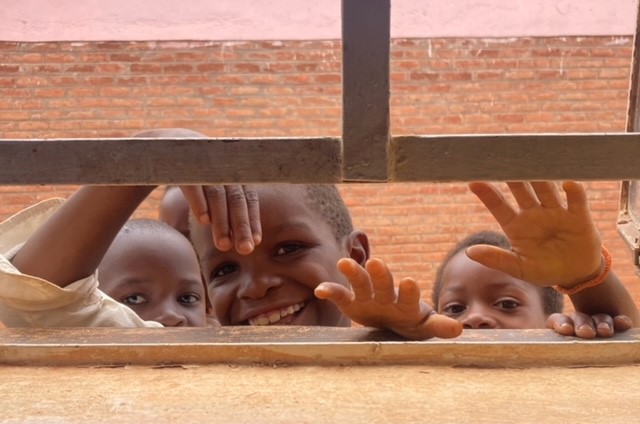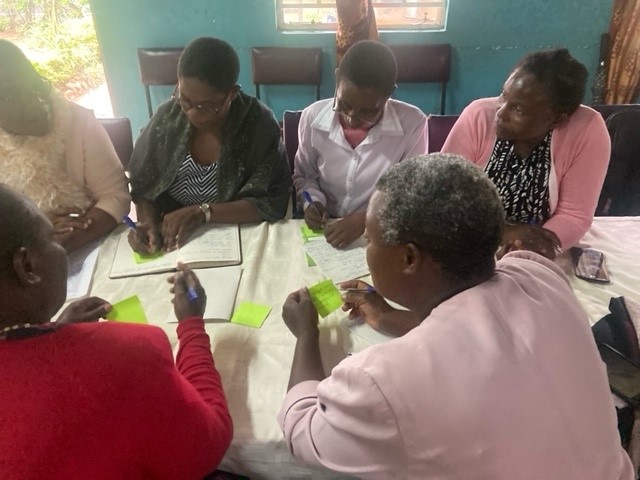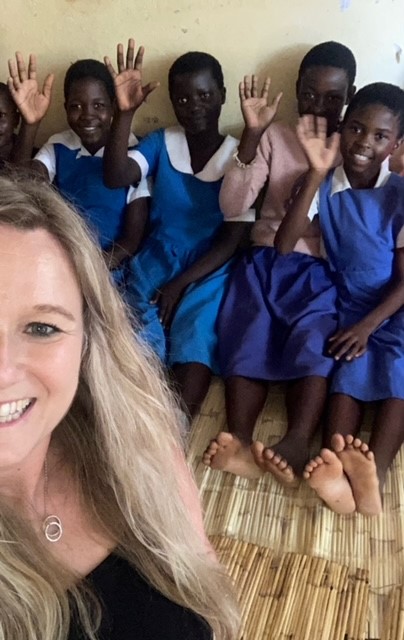We arrived in Malawi after a 36 hour travel:
Glasgow to Manchester,
Manchester to Geneva,
Geneva to Addis Ababa
Addis to Congo
Congo to Lilongwe
Lilongwe to Blantyre.
We settled in to the familiar surroundings and welcoming atmosphere of Kabula Lodge. We met with old friends from the education department and collaborated to determine a shared vision and goals for the week.
Before our first senior leader training session we had the privilege of visiting some classes at two host schools.
There were many familiarities from my memory of Malawian schools from my previous visits; class sizes of 80-110 pupils, the respectful response of children to staff, children having an eagerness and thirst for learning, the playful engaging humour and approach of the staff, the “edutainment”(learning and teaching approach which combines learning with entertainment such as songs, rhymes and play), the happy and welcoming response from children and staff, the tallular approach to resource management, the continued need for more books in their libraries (they were very thankful to support from MLOL in establishing these/providing resources), the desire for real footballs, children being equally as eager and excited to engage in conversation and learn about the differences in our lives.
Many differences and developments are also noteable; new toilet facilities with signs, a large number of children with school bags, water stations, offices for the Head Teacher, ventilation facilities, new role play areas in the classrooms, improvements to the staff development areas (TDC’s).
Differences were also apparent in the community; shopping malls - many of them with some familiar shops from home, the number and variety of cars, more pedal bikes and motorbikes, more familiar retail, hair and beauty studios, a gym/sports complex and fitness studios, better quality roads, increased pavement areas and the increased importance of digital connectivity.
Unfortunately, some of these community differences only further emphasised the increased divide between rich and poor and the increased levels of poverty and level of need.
We started each Senior Leadership training session by co-creating a Charter which we should all follow to ensure a successful session and by co-creating success criteria. All of the sessions have focussed upon “what makes effective leadership of learning and teaching”.
The co-created success criteria has differed based on context and participants needs/wants and we have adapted our training to overcome these objectives each session.
There are many similarities to previous sessions; the staff to desire to share, learn and collaborate to ensure the best education for the children, the resilience and dedication of staff to have walked/travelled a multitude of ways and miles to attend the training, the rigorous and manual approach to logging the school improvement priorities, school vision and data on the walls of the Head Teachers office, the importance of school libraries, the vast numbers of challenges they face in their schools to deliver their desired quality educational experience.
There are many noteable differences; more emphasis on the importance of relationship building with young people, more open to responding to learner voice (still some development to do in terms of learners leading learning), the reliance on mobile phones/connectivity, the use of the word “edutainment” to describe an approach to learning, greater collegiality in relation to providing feedback to staff, greater familiarity and use of the National Education Standards, increased importance of staff development and coaching approaches to supporting this.
It was so positive and impactful to have the Education Officers actively involved throughout the duration of the training sessions bringing greater relevance.
Feeling very fortunate and thankful to be involved in this project.









